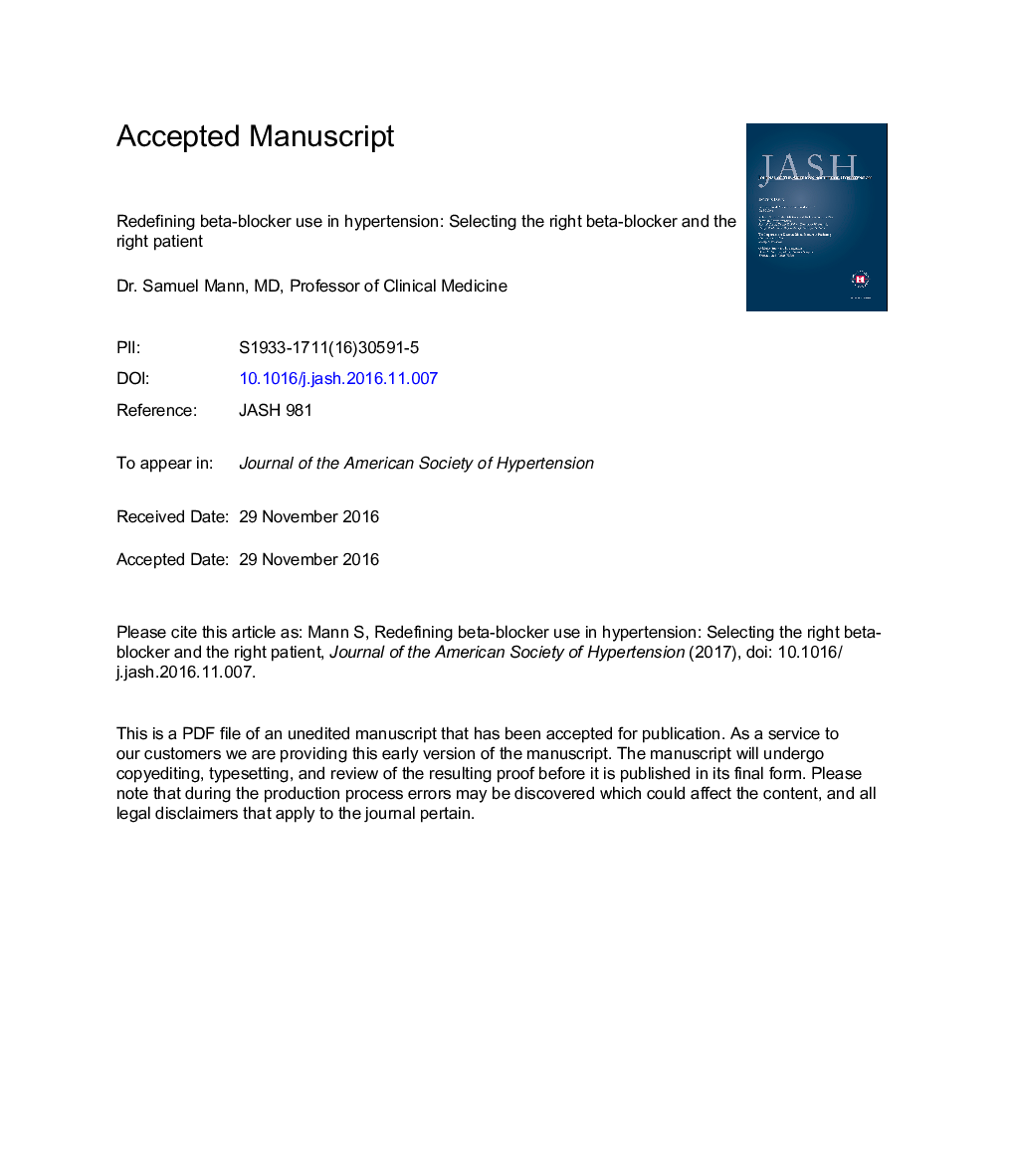| Article ID | Journal | Published Year | Pages | File Type |
|---|---|---|---|---|
| 5613652 | Journal of the American Society of Hypertension | 2017 | 41 Pages |
Abstract
Randomized controlled trials have concluded that the cardiovascular outcome of first-step treatment of hypertension with traditional vasoconstricting beta-blockers is inferior to treatment with other antihypertensive drug classes. Beta-blocker use is also associated with undesirable side effects. Consequently, some recent guidelines consider beta-blockers an inferior option for first-step treatment of hypertension. Despite this, beta-blockers are still widely prescribed, and likely overused, in the management of hypertension. It is the contention of this perspective that beta-blockers do have an important role in treating hypertension, but their use needs to be much better targeted, by better identification of both the right patient and the right beta-blocker. Identifying the right patient involves consideration of underlying mechanisms of hypertension. In the absence of comorbidities for which a beta-blocker is indicated, beta-blockers would not seem to be the preferred treatment for patients with either sodium/volume-mediated hypertension, for which they are usually ineffective, or for those with renin-angiotensin system-mediated hypertension, for which angiotensin-converting enzyme inhibitors and angiotensin receptor blockers provide equal antihypertensive efficacy with evidence of better outcome and fewer adverse effects. Beta-blockers would instead appear to be best suited for patients with sympathetically driven, that is, neurogenic, hypertension, whether as a first-step drug, such as in patients with hypertension in the acute post-stroke period, in so-called “hyperkinetic” patients, and in patients with labile hypertension, or as an add-on drug in patients with resistant hypertension. In choosing among the beta-blockers, combined alpha/beta-blockade offers advantages over beta-blocker monotherapy and merits greater clinical and research attention. Finally, unreliable bioavailability greatly interferes with the effectiveness of lipophilic, but not nonlipophilic, beta-blockers. Clinical effectiveness could be improved with greater focus on the beta-blockers with the more favorable pharmacokinetics.
Related Topics
Life Sciences
Neuroscience
Endocrine and Autonomic Systems
Authors
Samuel J. MD,
